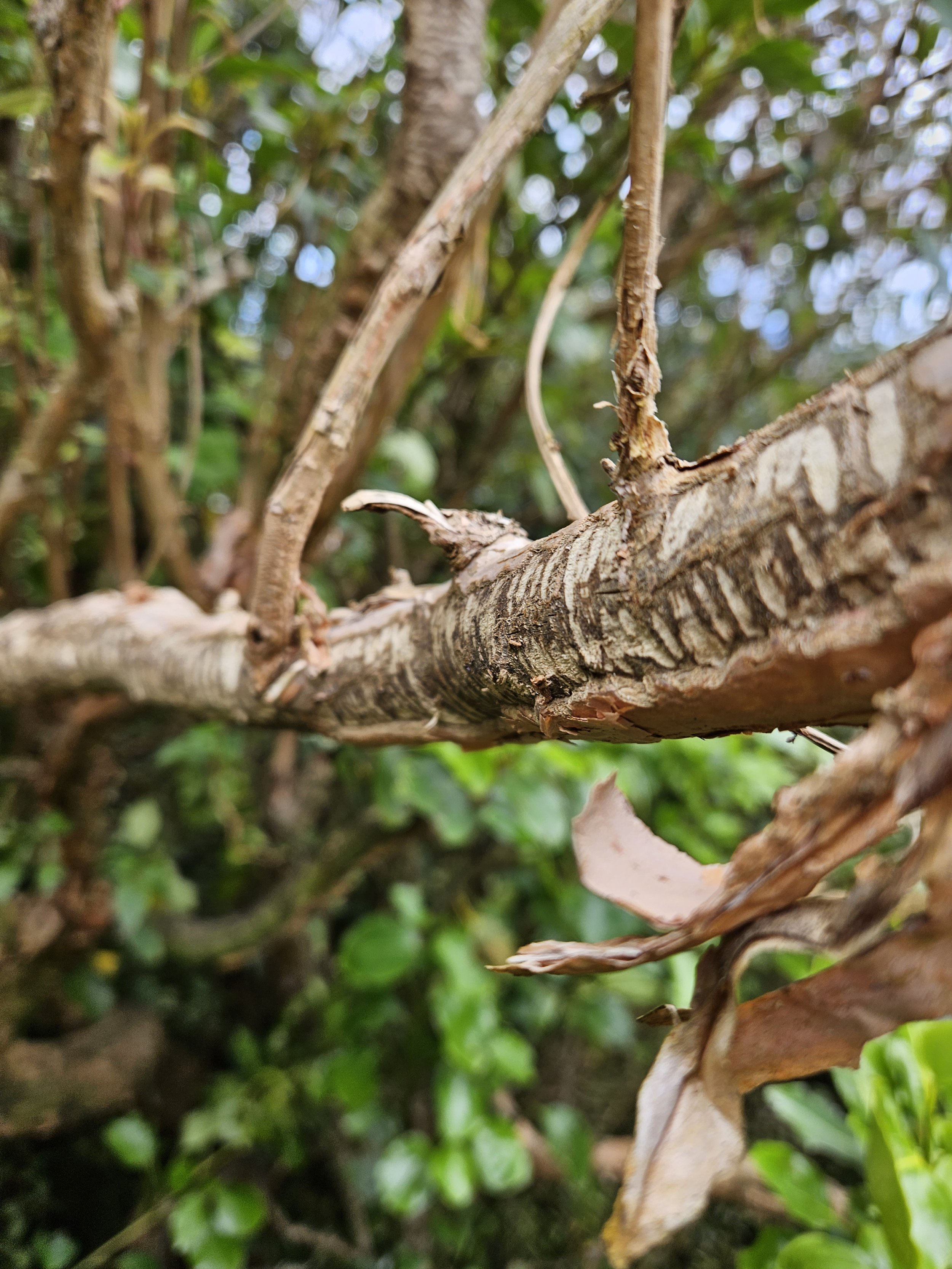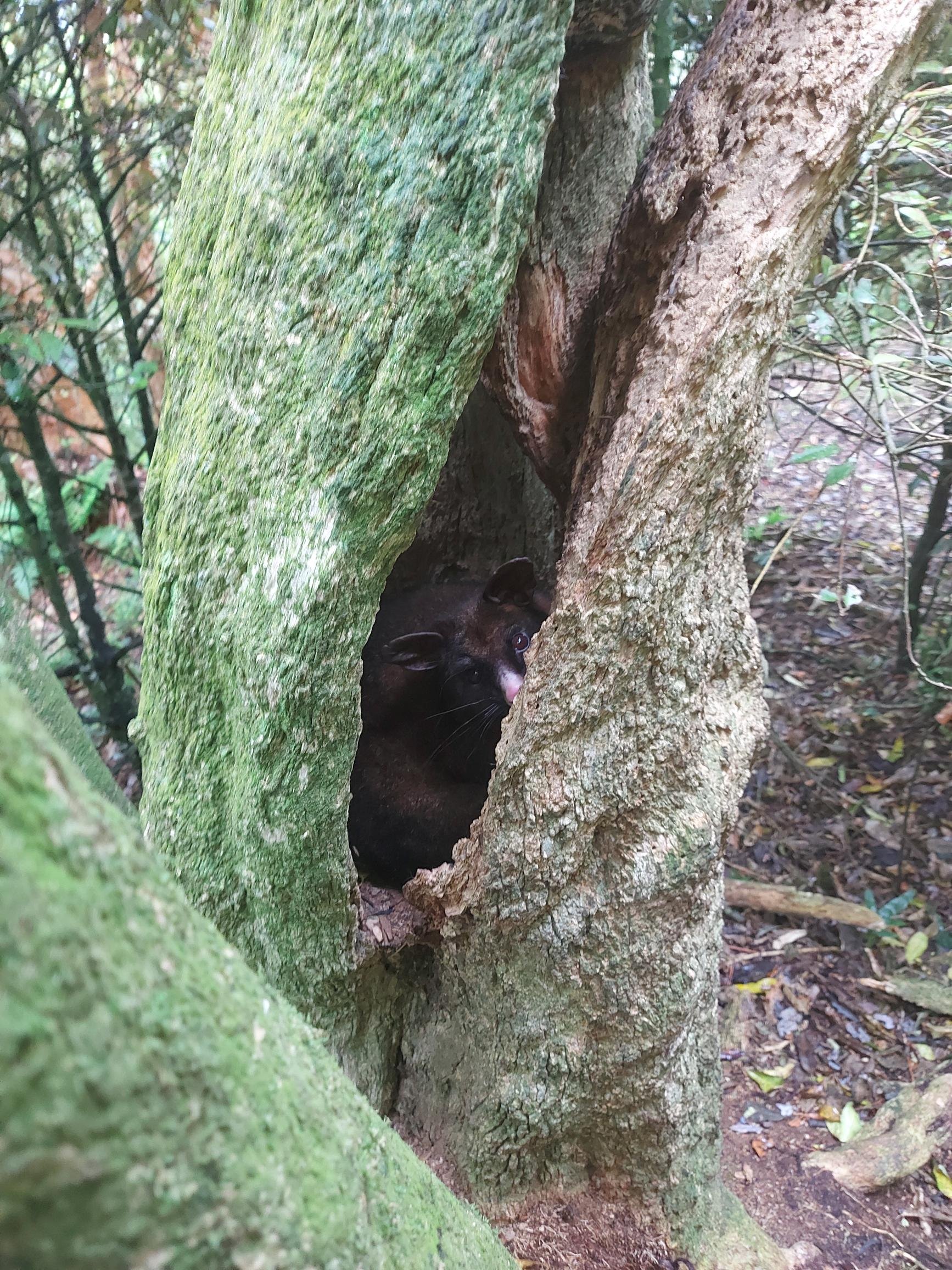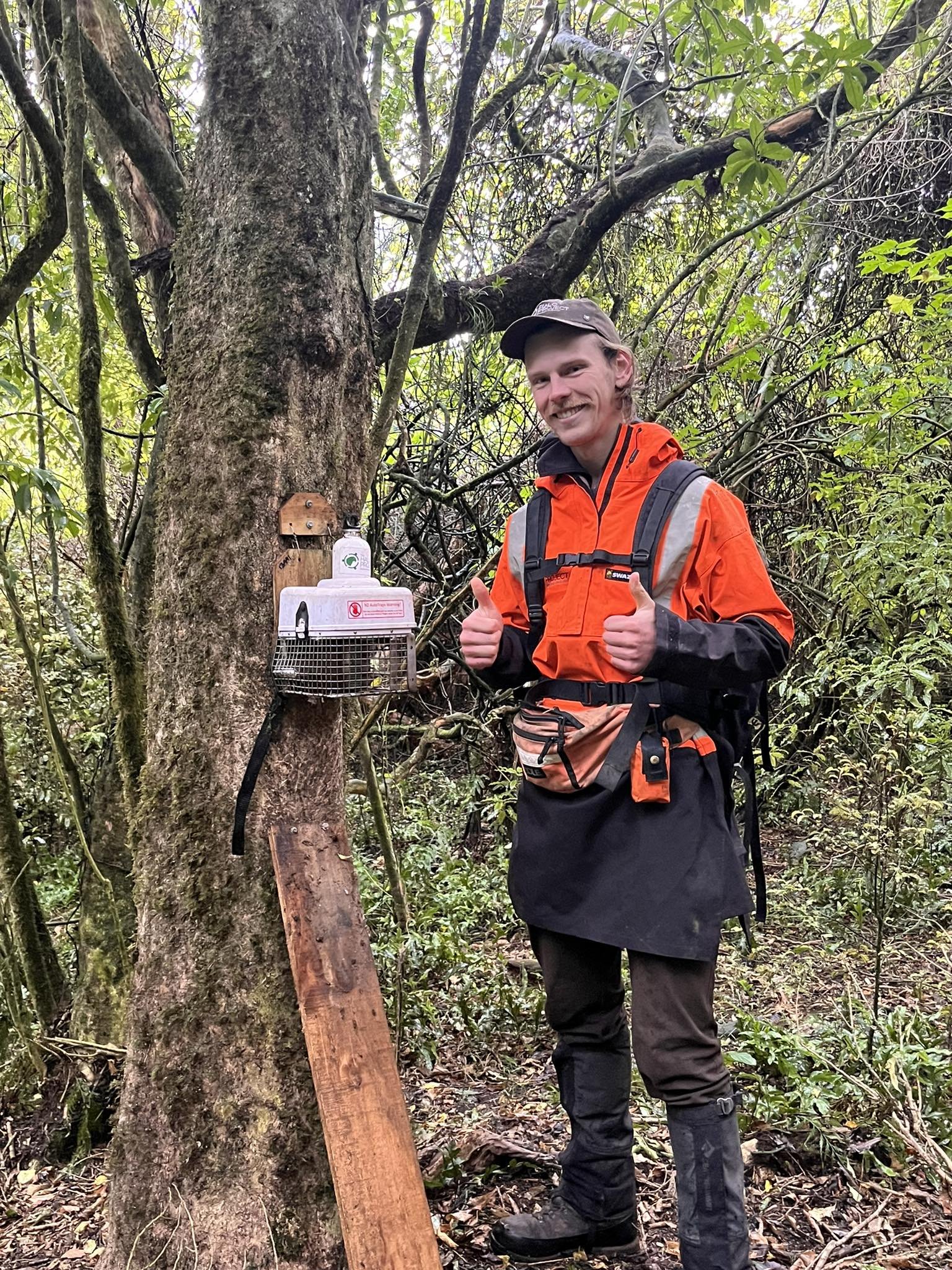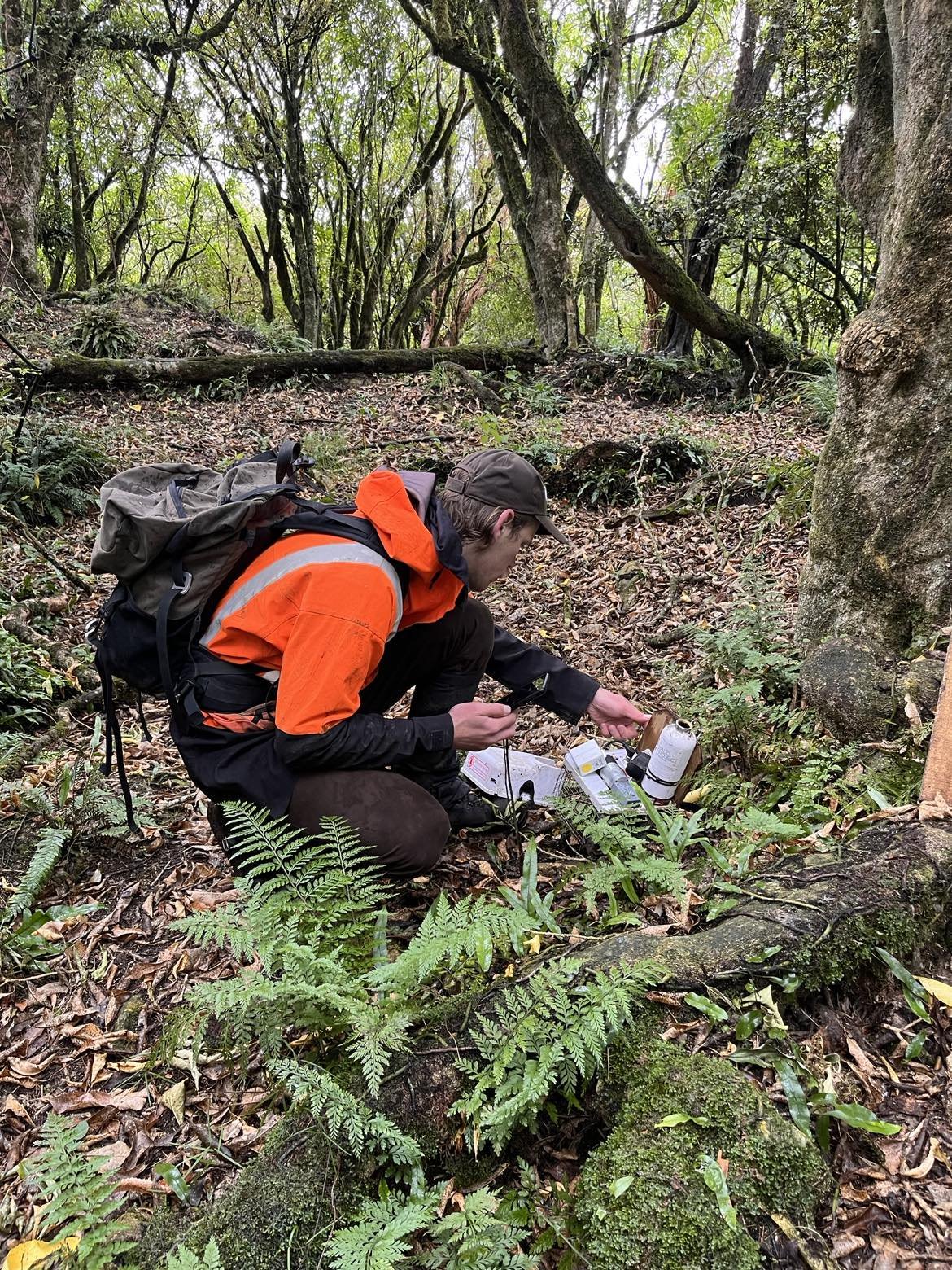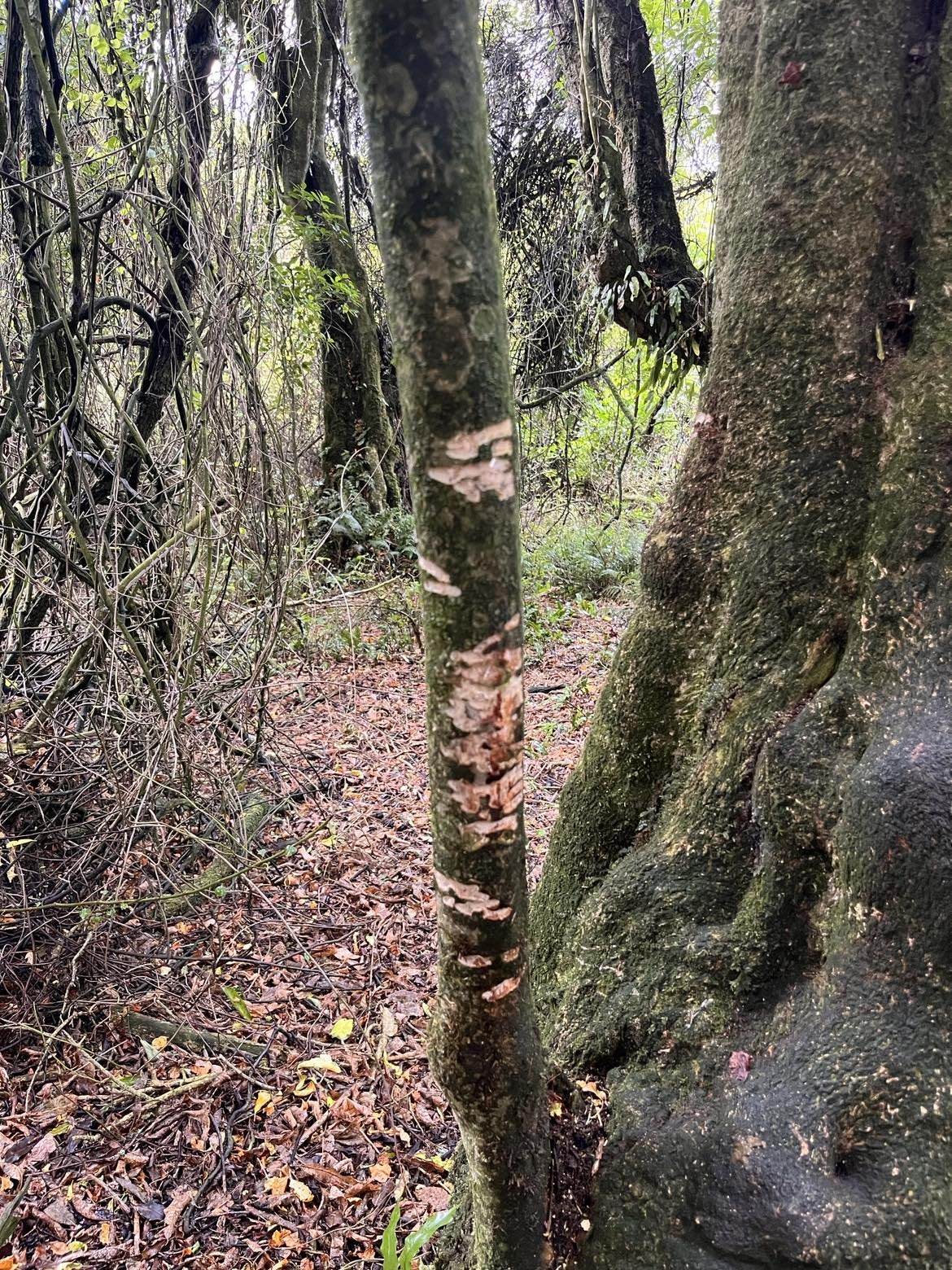The ‘Halo Possum Effect’ continues to spread
The Halo Project are working in the 10,000 hectares surrounding Orokonui Ecosanctuary to get possums down to ‘zero-density’. This means that the number of animals in the area are so low that they can’t reproduce, and is the next step towards becoming completely possum free.
This ‘zero-density’ work is being supported by a network of devices hosted in backyards around the neighborhood. Our backyard trappers are an integral part of the project, in fact, backyard trappers have removed 2,298 possums since 2018!
Possum damage on tree trunk (left), possum in tree (right).
The Halo team will be visible in the Aramoana and Long Beach areas over winter and urge residents to report any possums you spot using our online form. Our team are ready to respond with the aim to remove every possums reported. Your eyes and ears are a crucial tool in helping to detect remaining possums.
Meanwhile, outside of the ‘zero-density zone’ on the Karitāne Coast, predator control work has well and truly begun. AT220 automatically self-resetting traps have been installed throughout the landscape and are already hard at work controlling possums.
Reports from landowners hosting these devices indicate very high possum densities in the area. In fact, 10 devices removed 300 possums in just two weeks!
Left to right; Kim Miller Operations Field Lead for the Halo Project servicing and AT220 trap, possum markings on a tree.
Predator monitoring on Warrington Spit confirmed the presence of several predator species, and the devices installed here have begun to remove predators. Three hedgehogs and four possums have been removed since February.
The seabird species that visit here are abundant and the likes of the bar-tailed godwit and South Island oystercatcher are seen regularly.

